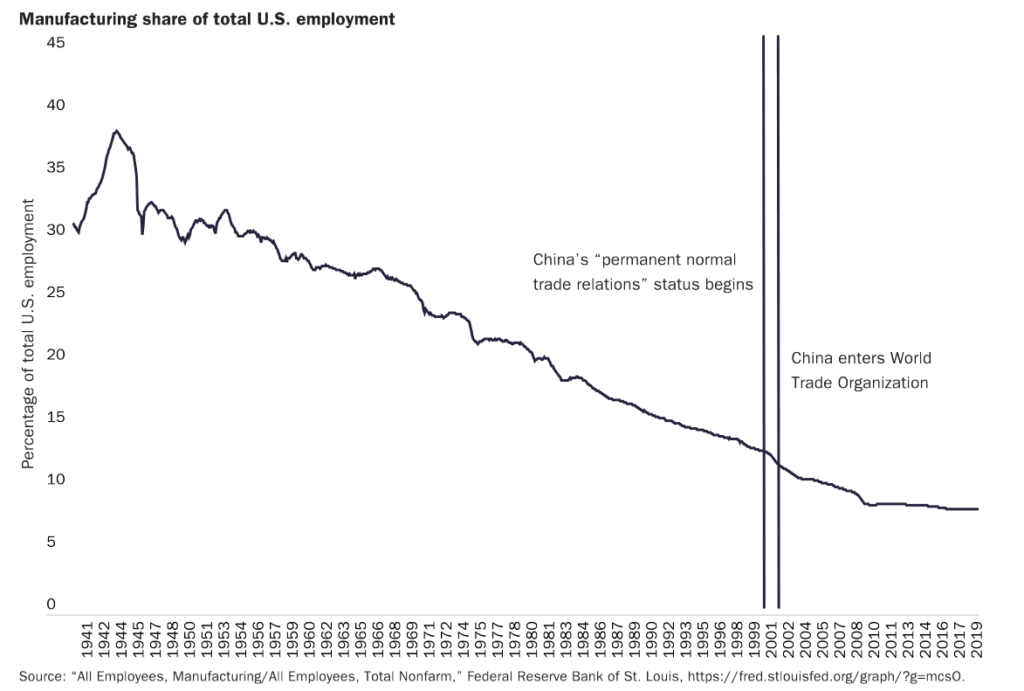We all know the story.
America allowed China Permanent Normal Trade Relations (PNTR) status in 2000 which in turn led to China’s accession to the WTO. This in turn led to a ‘China Shock’ to American manufacturing destroying millions of blue-collar jobs whilst the Washington elites and their friends reaped the benefits. This then led to a populist backlash paving the way for Trumpian-belligerence, protectionism and an isolationist trade agenda.
There’s just one problem. Up to the bit about Trump most of the narrative above is plausible tosh built around circumstantial ‘proofs’ of often thin or dubious provenance.
Writing in a Policy Analysis for the Washington based Cato Institute (an old-school-Republican leaning think tank) Scott Linicome details the reality of a much more complex and nuanced picture that has affected America’s economic development since 2000.
Along the way he usefully debunks some of the bigger myths surrounding the ‘China Shock’. For example how the ‘Shock’ affected U.S. manufacturing jobs.
You’ve seen those charts that show clearly how U.S. manufacturing jobs collapse from 2000 on; but take the chart back further and see what reveals itself?

In the briefest summary the paper looks at the ‘amplified costs and ignored benefits’ that have percolated this argument and it’s important the record is set straight before an erroneous narrative is allowed to produce more policy damage than the considerable amount already visited on the U.S. (and global) public.
This is such an important subject but I know few will have time for the whole paper so below I’ve copied the longish summary for you in its entirety. Please make time for this at least:
” ..the facts simply do not support popular assertions from American politicians and pundits that engagement with China in the 1990s and 2000s was an obvious mistake and that denying China admission to the WTO was realistic a policy choice that would have improved U.S. economic and geopolitical standing today or that the real labor and cultural issues in America today are the fault of “Washington elites” who blithely pursued normalized trade with China to benefit corporate donors and democratize communist China while dogmatically refusing to support—through trade, labor, or any other policies—the working class. Such narratives are unsupportable.
Labor market and cultural disruptions in the United States are real and important, as is China’s current and unfortunate turn toward illiberalism and imperialism. But pretending today that there was a better trade policy choice in 2000 than PNTR and engagement more broadly is misguided. It assumes too much, ignores too much, and demands too much. Worse, it could lead to truly bad governance: increasing U.S. protectionism; forgiving the real and important failures of our policy makers, CEOs, and unions over the past two decades; and preventing a political consensus for real policy solutions. Indeed, these things are happening now.”
You can access the paper in full via this link Was Normalizing Trade with China a Mistake?
Happy Sunday.